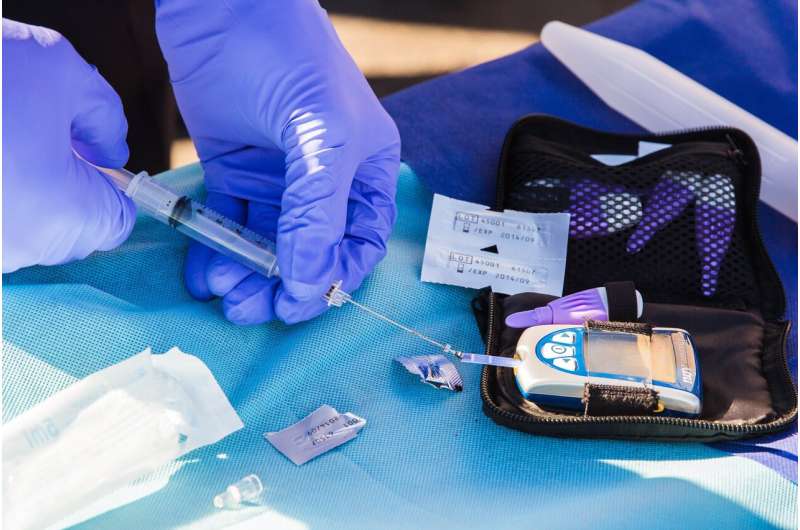
A new study from researchers at the Perelman School of Medicine at the University of Pennsylvania found significant disparities in the use of sodium-glucose cotransporter 2 (SGLT2) inhibitors, a class of drugs proven to treat type 2 diabetes, with usage remaining low with Black, Asian, and lower-income groups despite an increase in overall usage for patients with type 2 diabetes. The study is published in JAMA Network Open.
“Study after study, including large randomized trials, have demonstrated a cardio-protective and kidney-protective effect of this class of medications” said the study’s lead author, Lauren Eberly, MD, MPH, a cardiology fellow at the University of Pennsylvania. “We know there are already higher rates of heart failure and kidney disease among Black patients. What is concerning is that this is a therapy we know prevents death from those conditions and prevents progression from those conditions, and yet, we found that Black patients are less likely to get this therapy, as well as female patients and those with lower socioeconomic status.”
SGLT2 inhibitors are a group of medications that work to lower the glucose levels in the blood by blocking the protein that reabsorbs sugar back into the body from urine. They lower the risk of hospitalization for heart failure, decrease risk of death from cardiovascular causes, slow progression of kidney disease, reduce complications among patients with chronic kidney disease, and are now recommended for all diabetic patients who are at high risk for these diseases.
In this study, researchers examined data from October 2015 to June 2019 from more than 900,000 diverse, commercially insured patients with type 2 diabetes and found that the cumulative percentage of patients treated with SGLT2 inhibitors increased from 3.8 percent to 11.9 percent.
However, the analyses showed that Black, Asian, and female patients had lower rates of SGLT2 inhibitor use, as well as patients whose median household income was less than $50,000. The study also found that usage rates remained low for patients with heart failure, cardiovascular disease, and chronic kidney disease.
“These results are consistent with prior studies that have shown decreased use of novel therapies among Black patients. Implementation strategies that prioritize not only delivery of guideline-directed care but also equitable guideline-directed care are critical in ensuring all patients have access to evidence-based therapies” said the study’s senior author, Srinath Adusumalli, MD, MSHP an Assistant Professor of Clinical Medicine in the Division of Cardiovascular Medicine.
The study found that having a visit with an endocrinologist in the last 12 months was one of the strongest factors associated with SGLT2 inhibitor use, acknowledging that the demonstrated clinical benefit may not be common knowledge yet for many non-specialist providers treating patients with diabetes. Additionally, marginalized patient groups likely have barriers to accessing specialty care. Eberly and her fellow researchers encourage the development of strategies to increase the comfort of all providers, especially primary care and cardiology providers, with prescribing this class of drugs.
Source: Read Full Article
